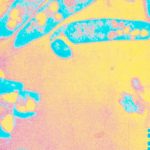Lien vers Pubmed [PMID] – 11254607
Infect. Immun. 2001 Apr;69(4):2456-61
The resolution of pulmonary tuberculosis (TB) critically depends on the development of the Th1 type of immune responses, as exemplified by the exacerbation of TB in IL-12-deficient mice. Therefore, vaccination strategies optimizing IL-12 production by antigen-presenting cells (APC) in response to mycobacteria may have enhanced protective efficacy. Since dendritic cells (DC) are the critical APC for activation of CD4+ and CD8+ T cells, we examined whether stimulation of Mycobacterium bovis bacillus Calmette Guérin (BCG)-infected DC via CD40 increased their ability to generate Th1-oriented cellular immune responses. Incubation of DC with an agonistic anti-CD40 antibody activated CD40 signaling in DC, as shown by increased expression of major histocompatibility complex class II and costimulatory molecules, mRNA production for proinflammatory cytokines and interleukin 12 (IL-12) p40. This activation pattern was maintained when DC were stimulated with anti-CD40 antibody and infected with BCG. Importantly, CD40-stimulated BCG-infected DC displayed increased capacity to release bioactive IL-12 and to activate gamma interferon (IFN-gamma) producing T cells in vitro. Moreover, when C57BL/6 mice were immunized with these DC and challenged with aerosol Mycobacterium tuberculosis, increased levels of mRNA for IL-12 p40, IL-18, and IFN-gamma were present in the draining mediastinal lymph nodes. However, the mycobacterial burden in the lungs was not reduced compared to that in mice immunized with BCG-infected non-CD40-stimulated DC. Therefore, although the manipulation of DC via CD40 is effective for enhancing immune responses to mycobacteria in vivo, additional strategies are required to increase protection against virulent M. tuberculosis infection.
